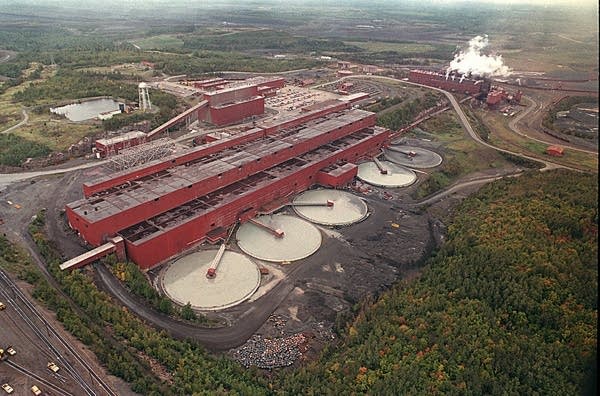Mining companies finalize joint venture to pursue copper-nickel mines

Go Deeper.
Create an account or log in to save stories.
Like this?
Thanks for liking this story! We have added it to a list of your favorite stories.
PolyMet Mining, which has been working for nearly two decades to develop the state’s first copper-nickel mine in the northeastern corner of the state, officially has a new name, and a new partner.
PolyMet and Teck American — a subsidiary of Teck Resources— announced Tuesday they have successfully closed a joint venture that the two Canadian companies first announced last July to develop their deposits of copper, nickel, cobalt and platinum-group metals on the northeastern edge of the Iron Range.
The new entity has a new name—NewRange Copper Nickel—and a new general manager, Tannice McCoy, who for the past several years has headed up Teck’s development of the Mesaba deposit outside the small town of Babbitt.
Under the terms of the deal, the NorthMet deposit—which PolyMet has been pursuing near the city of Hoyt Lakes—and Teck’s nearby and much larger Mesaba deposit, are now controlled by NewRange under single management.
Turn Up Your Support
MPR News helps you turn down the noise and build shared understanding. Turn up your support for this public resource and keep trusted journalism accessible to all.
Together, the two deposits contain more than four billion tons of potential mineral resources. That constitutes more than half of the known valuable metals in the Duluth Complex, a rich ore body that stretches across northeastern Minnesota.
Minnesota recently passed a bill requiring the state’s electrical utilities to transition to 100 percent carbon-free energy by 2040, and NewRange argues the metals it hopes to mine are needed for that transition.
“NewRange Copper Nickel has potential to be a modern, multi-generational operation that will support North America’s acceleration to a carbon-neutral future, build a better quality of life for people, and diversify and create significant economic benefits for northern Minnesota and beyond,” McCoy said in a statement.
Both PolyMet and Teck have 50 percent stakes in the new standalone entity, which will be overseen by a management committee made up of three representatives each from Teck and PolyMet. PolyMet CEO Jon Cherry will serve as that committee’s first chairperson.
“Successful closing of the joint venture moves NewRange Copper Nickel to the forefront of responsible development of American-sourced critical minerals for the manufacture of clean energy and clean transportation technologies, such as battery storage, wind and solar generation, and electric vehicles,” said Cherry.
The NorthMet project is the more advanced project of the two. State and federal officials greenlighted the proposal more than four years ago, but it’s been tied up in litigation and regulatory proceedings ever since.
Three major permits the mine needs to move forward are in limbo. The federal Environmental Protection Agency has recommended that one of them, a wetlands permit, not be reinstated.
Another key permit, the state permit to mine, has been suspended until the state conducts what’s known as a contested case hearing, which is scheduled for March.
The Mesaba deposit, located adjacent to the Northshore Mining open pit taconite mine outside Babbitt, is about three times larger than NorthMet. But that project is still in the exploratory and project development phase.
NewRange is receiving an infusion of $170 million from Teck and Glencore (PolyMet’s majority owner) to continue permitting and engineering work on the projects.
The company says its focus is on clearing the way for the opening of the NorthMet mine. The Mesaba project would need to go through a separate environmental review and permitting process before it could move forward.
Both projects seek to mine metals needed to build green technologies critical to the transition to a carbon-free economy. President Joe Biden has pledged to develop a domestic supply chain of these materials.
But the Biden administration also recently placed a 20-year mining moratorium on about 350 square miles of federal land in northern Minnesota that lies within the watershed of the Boundary Waters Canoe Area Wilderness, because of concern that mining there could result in “irreparable harm” to the environment.
While Minnesota has a long history of iron ore mining, copper-nickel mining carries new risks for the state’s water-rich northland, because the metals are locked up in sulfide-bearing ore, which can leach sulfuric acid and heavy metals when exposed to air and water.
Mining companies argue that modern techniques can protect the environment and that engineering plans are heavily scrutinized in the permitting process before any projects are approved.
But the government argued that the Boundary Waters is too special a place to risk to a process that often underestimates environmental impacts.
The Mesaba and NorthMet projects are not impacted by the government’s mining ban. While the Mesaba project lies partly within the area covered by the moratorium, it consists of private and state mineral leases that aren’t impacted by the ban.
But they’re certain to face continued scrutiny from the Fond du Lac Band of Lake Superior Chippewa—whose reservation lies downstream of the proejcts—and environmental groups that argue that this type of mining is unproven in Minnesota and carries with it a far greater risk of the chance for severe water pollution.
Meanwhile, NewRange plans to increase its workforce and begin pre-construction work it can legally begin with the permits it holds, such as asbestos abatement at the old LTV taconite plant it plans to rehab for the NorthMet project, and baseline studies and other pre-development work on the Mesaba deposit.
The new company currently employs 27 people who formerly worked for PolyMet and Teck, but has posted several new positions.


